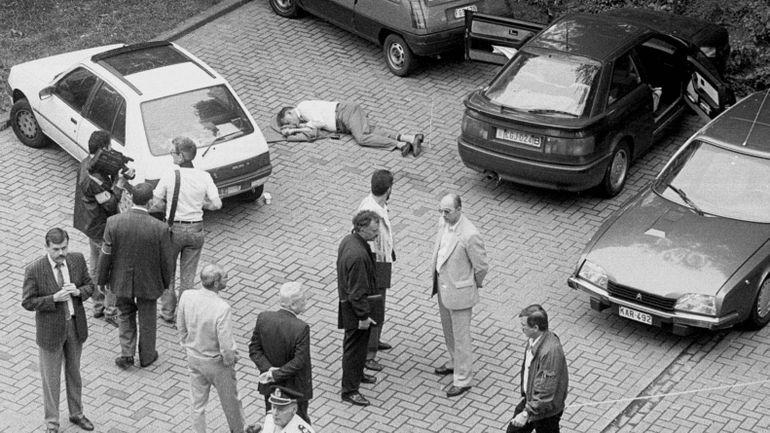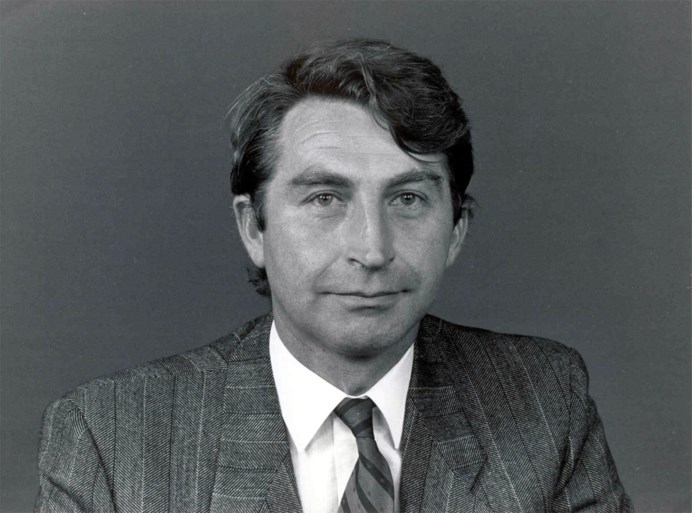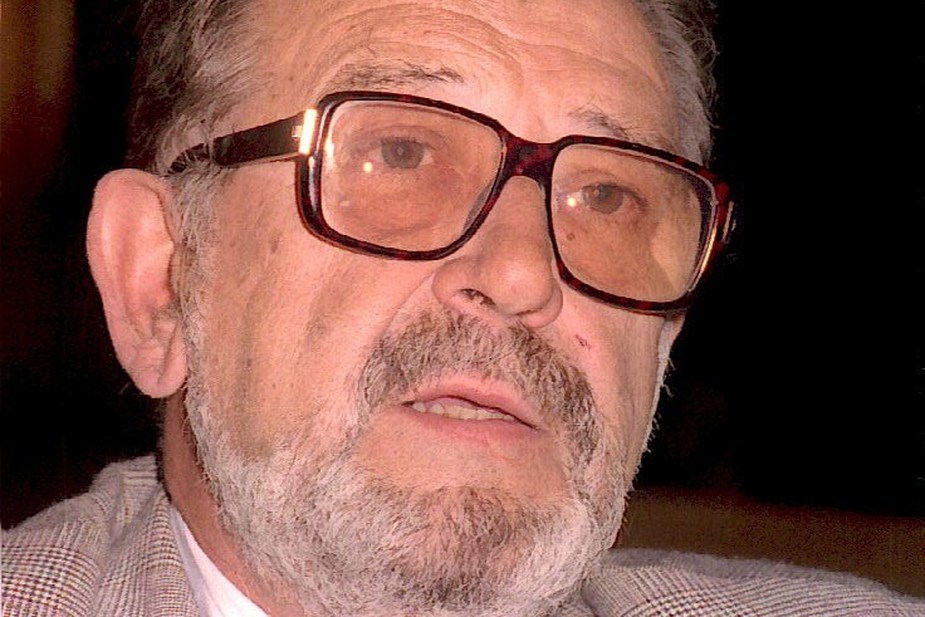Thirty years ago today, at 07.25 on a Thursday morning, two gunmen took aim at a man and a woman leaving an apartment block in Liege, leading to only the second political assassination in Belgium’s history.
The victims were André Cools, a prominent socialist politician, who died on the scene, and his partner Marie-Hélène Joiret, who survived the attack.
Cools had been mayor of Flémalle, his own personal political fiefdom, and had held a number of posts in government, including budget minister, deputy prime minister, president of the socialist party and president of the Walloon parliament.
Just after his killing, coincidentally, the Augusta affair, where the socialists in government were found to have accepted kick-backs from the Italian helicopter company in return for a government contract. Cools is likely to have been deeply involved.
The investigation into the murder soon turned its attention to Silvio De Benedictis, a tradesman who had previously come to police notice in a matter of stolen bonds.
Their investigations later led in 1998 to the arrest in Tunisia of two Tunisian nationals accused of carrying out the assassination. They had been living in Sicily, and had connections to the Mafia there.
They were later sentenced to 25 years in prison, which they served in Tunis.

A police reconstruction of the killing.
In 2004, 13 years after the murder, six men with close contacts to the socialist party were convicted of their roles in the assassination. They were:
Richard Taxquet, private secretary to minister Alain Van der Biest; Pino Di Mauro, Van der Biest’s driver; Cosimo Solazzo and Domenico Castellino – all of whom were sentenced to 20 years for various crimes including providing accommodation for the shooters and transporting them to and from Italy.
Solazzo was convicted in absentia, as he had escaped to Italy. In April last year he was finally extradited to Belgium to begin his sentence.
At the same time, two minor figures in the intrigue, Luigi Contrino and Carlo Todarello received sentences of five years.

Alain Van der Biest, whose underlings were plotting murder while he was unaware. © Belga
Alain Van der Biest, in the meantime, had committed suicide in 2002, while his employees, who had used the cover of his office to commit the most serious political crime there is, were awaiting trial. Van der Biest was a chronic alcoholic, often unable as a result to carry out the simplest duties, and open to the manipulations of someone like Taxquet, himself a former police officer.
Cools not goes down in history as only the second politician to be assassinated in the history of Belgium. The first was Julien Lahaut, a communist member of parliament and president of the Communist Party.
His offence: he was accused of crying out the words “Vive la République” in the parliament in 1950 as King Baudouin, uncle of the present king, took his oath of office. However the cries more likely came from members of the faction with whom he was sitting, and Lahaut himself, although the most prominent of those present, was wrongly accused.

